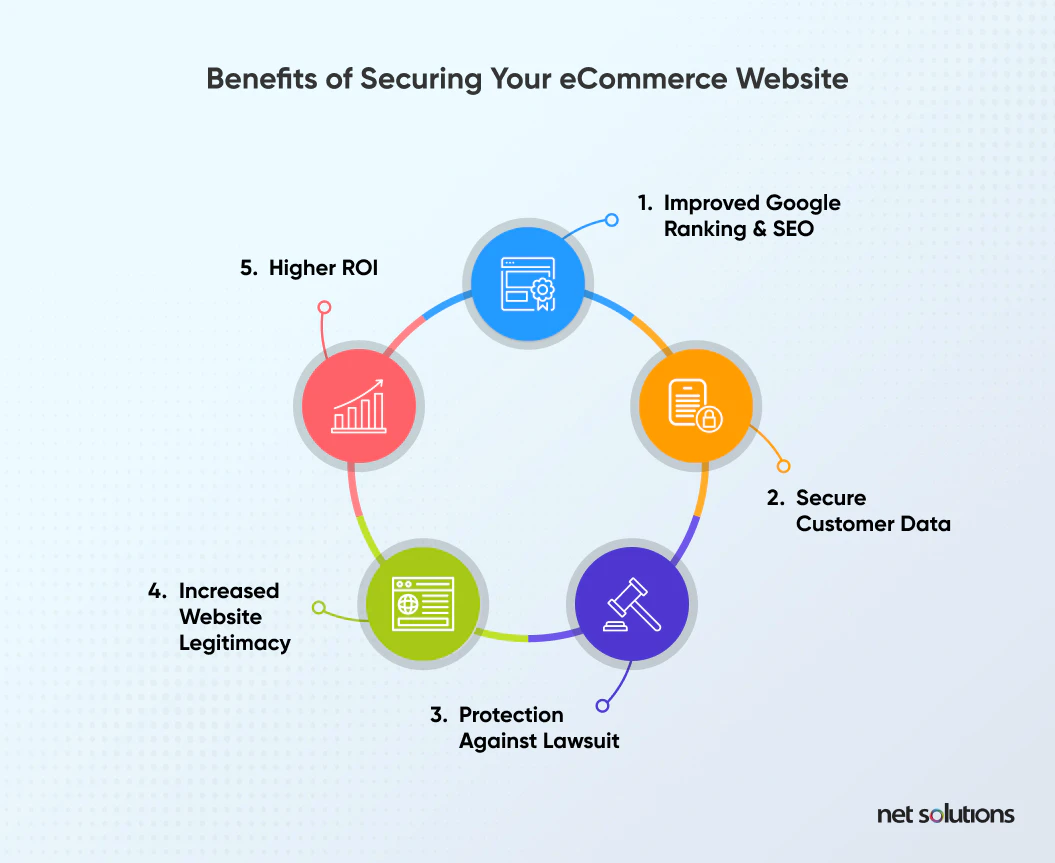
Fortifying E-commerce: Essential Security Measures for Online Transactions
The rapid growth of e-commerce has revolutionized the way we shop, providing unparalleled convenience and accessibility. However, with this convenience comes the need for robust security measures to protect sensitive information and ensure a safe online shopping experience.
The Importance of E-commerce Security
As the digital landscape expands, so do the threats associated with online transactions. Cybercriminals are becoming more sophisticated, making it crucial for e-commerce platforms to prioritize security. Implementing effective security measures not only safeguards customer data but also builds trust and confidence in the online shopping ecosystem.
SSL Encryption: Safeguarding Data in Transit
Securing data during transmission is paramount in e-commerce. Secure Sockets Layer (SSL) encryption is a fundamental security measure that encrypts the data exchanged between a user’s browser and the e-commerce website’s server. This encryption ensures that sensitive information, such as credit card details, remains confidential and cannot be intercepted by malicious actors.
Multi-Factor Authentication (MFA): Adding an Extra Layer of Protection
Multi-Factor Authentication is a powerful tool in fortifying e-commerce security. By requiring users to provide two or more authentication factors, such as a password and a one-time code sent to their mobile device, MFA significantly reduces the risk of unauthorized access. This additional layer of protection adds a crucial barrier for potential cyber threats.
Regular Security Audits: Identifying and Addressing Vulnerabilities
E-commerce platforms should conduct regular security audits to identify and address potential vulnerabilities. These audits involve thorough assessments of the system’s architecture, codebase, and security protocols. By proactively addressing weaknesses, e-commerce businesses can stay one step ahead of cyber threats and ensure a resilient security posture.
Payment Card Industry Data Security Standard (PCI DSS) Compliance
For e-commerce platforms that handle credit card transactions, PCI DSS compliance is non-negotiable. This industry-standard security framework outlines stringent requirements for securely processing, storing, and transmitting credit card data. Adhering to PCI DSS standards is essential for mitigating the risks associated with payment card information.
Fraud Detection and Prevention Systems: Staying Ahead of Threats
Implementing robust fraud detection and prevention systems is vital for e-commerce security. These systems use advanced algorithms and machine learning to analyze transaction patterns and detect suspicious activities. By identifying and preventing fraudulent transactions in real-time, e-commerce platforms can safeguard both themselves and their customers.
Regular Software Updates: Patching Vulnerabilities
Outdated software is a common entry point for cyber threats. E-commerce platforms must prioritize regular software updates to patch vulnerabilities and strengthen security. This applies not only to the main website but also to any third-party plugins or extensions used in the e-commerce ecosystem.
Customer Education: Empowering Users for Safe Practices
Ensuring e-commerce security goes beyond technical measures; customer education is equally essential. E-commerce platforms should provide resources and information to educate users about safe online practices, such as creating strong passwords, recognizing phishing attempts, and being cautious with personal information.
Data Backups: Minimizing Impact in Case of Breach
Despite all preventive measures, breaches can still occur. Implementing regular data backups is a crucial safety net. In the event of a security incident, having up-to-date backups allows e-commerce platforms to restore lost data quickly and minimize the impact on both the business and its customers.
Collaboration with Cybersecurity Experts: Staying Informed and Adaptive
Cyber threats are ever-evolving, making it essential for e-commerce platforms to collaborate with cybersecurity experts. By staying informed about the latest threats and emerging security technologies, businesses can adapt their security measures to address new challenges effectively.
Conclusion: Safeguarding the Future of E-commerce
In the dynamic world of e-commerce, security is not a one-time effort but an ongoing commitment. By implementing and continuously improving these essential security measures, e-commerce platforms can fortify their defenses, protect user data, and contribute to a safer and more secure online shopping environment.
To learn more about E-commerce security measures, visit TheJuon for valuable insights and resources.
